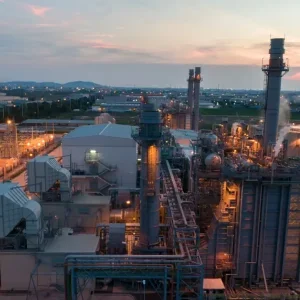The Turkish Stream gas pipeline and the construction of the Akkuyu nuclear plant in Turkey are not in the formal list of Russian sanctions against Turkey.
The Russian Government decree on special economic measures against Turkey released on 1 December makes no reference to measures in the energy sphere. However subsequently Energy Minister Alexander Novak on 3 December announced that the Turkish Stream project had been abandonned. The nuclear project has not as yet been suspended.
Earlier, Russian Minister of Economic Development Alexey Ulyukayev had implied that both the gas pipeline and the nuclear power plant project could be frozen or abandoned within the framework of restrictive measures against Turkey. He said that, given the threat posed by Turkey following the shooting down of a Russian plane in Syria, "such measures will be developed and will be proposed" and that the government will also put forward proposals to support Russian companies hit by these restrictive measures.
Russia and Turkey signed an intergovernmental agreement in May 2010 for construction and operation of a nuclear plant near Akkuyu, on the Mediterranean coast. The first site preparation contract for the proposed four unit plant was signed in 2013. An environmental impact assessment was submitted for the project in 2013 by the Russian project company Akkuyu NGS. Russian state nuclear corporation Rosatom has refused to comment on reports of a possible postponement of the project. According to Fuad Akhundov, General Manager of Akkuyu NGS, the company has so far invested $3bn in the project and has secured funding until 2017.
In the event, the Russian parliament decided to leave the decision on Akkuyu to state nuclear corporation Rosatom. On 1 December, the State Duma (lower house) voted against a proposal inviting Duma committees to study the issue of freezing construction of the Akkuyu NPP. Yury Lipatov, a member of the Committee on Energy said that he had discussed this issue with the Rosatom leadership. He noted that the 2016 federal budget did not include any money for the Akkuyu plant and said the decision should rest with Rosatom. "To save the money invested earlier, Rosatom has asked us not to publicly interfere in financial issues," he said.
Minister Ulyukaev told journalists the same day: "The decision of the government of Russia to suspend activities of the Russian-Turkish Intergovernmental Commission (IGC) does not mean automatic freezing of large investment projects, such as the Turkish Stream or construction of the NPP in Turkey. Decisions will be made by the economic entities themselves (Gazprom and Rosatom), but so far we can say that the projects are still being to be implemented." Ulyukaev said
Over the past few weeks, even before the latest development, plans for the nuclear power plant have been at the mercy of both national and international politics, with Turkish threats to cancel the project being followed by statements of support for the plant. In early October, after Russia’s decision to undertake air attacks against ISIS in Syria, Turkish President Tayyip Erdogan threatened to stop nuclear and gas projects with Russia, saying there were other places Turkey could get natural gas and other countries that could build its first NPP. However, ten days later, Turkish Energy Minister Ali Riza Alaboyun said Erdogan’s remarks had been "misinterpreted" and Turkey had "no issues with Moscow about energy". A month later he said Russia was among Turkey’s best partners in the field of energy.






